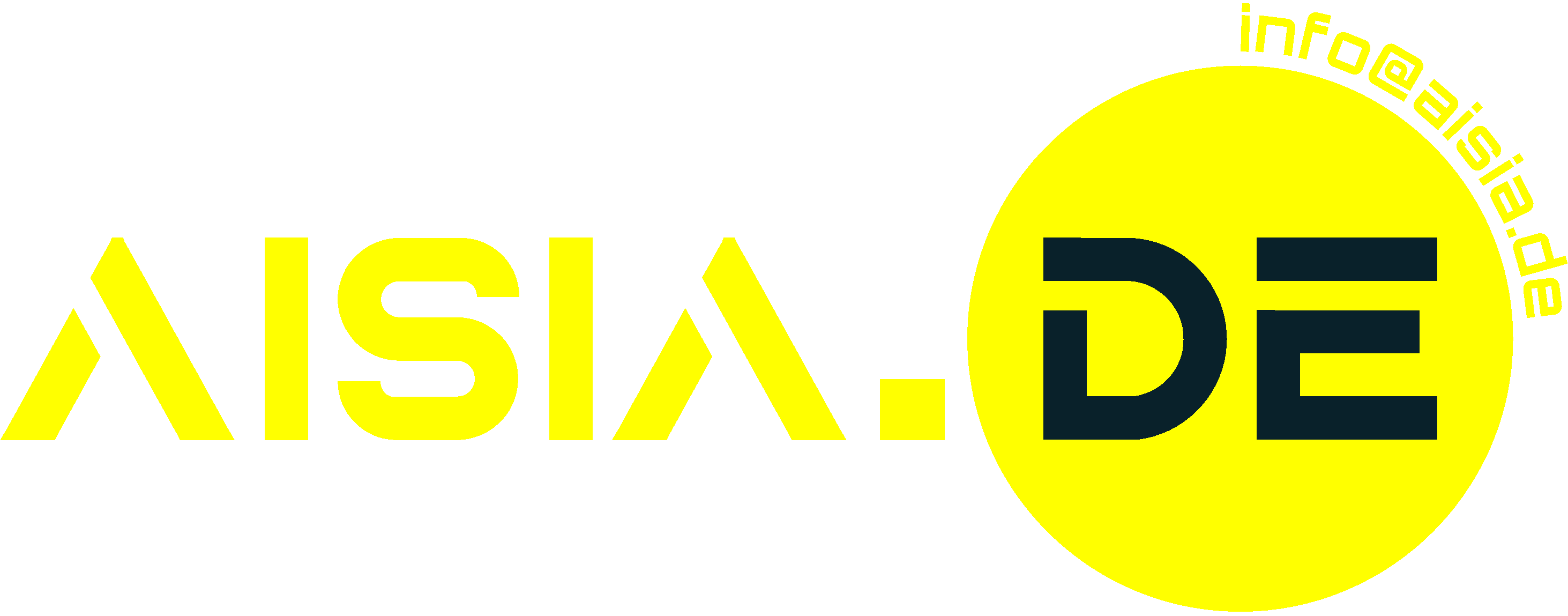

When running a small business you must never forget that YOU are the business. It’s not only what you sell, but also who is selling it. The WHO often is more important than the actual product itself. That’s a big difference when compared with a large company with a lot of employees behind the counter or reception desk. But in a small business the WHO, the YOU, usuallly is the decisive factor when building trust and customer loyalty. The more people come back because of you, the more you have become the product. That is also the ultimate test of your success. So the program first focusses on the WHO, which is you. Next will provide you with the tools for laying the groundwork of a well organized and structured business.

The contents below may overwhelm you, thinking it is too much to handle. But we will only discuss in the program what is relevant for you: to-the-point and comprehensible within the scope of your learning needs, style and abilitiy. Also keep in mind that there are many things of which you only need to know that they have to be taken care off when running a business. Knowing who and when to ask for assistance also is part of being an entrepreneur. No entrepreneur is a know-it-all. Being able to ask the right questions sometimes is more important. Above all, an entrepreneur is the best of organizers with a sharp mind and keen understanding of business. That’s who you are going to be.
MODULE 1:
KNOWING MYSELF AND THE BUSINESS
- Self-image: how do you see yourself?
- How do you think others see you?
- Your anxieties & joys
- Your weaknesses & strenghts
- What drives you?
- How do you define success and failure?
- Turning weakness into strength
- Capitalizing on your personal strengths
- Introspection & self-improvement
- What will be your personal sacrafice?
- Defining your learning goals and path
- Presenting your initial business case
- Do you know your costumers?
- How do you relate to them, and vice versa?
- Why will they come to you?
In this module we start with exploring your (hidden) talents and shortcomings, and conclude with a presentation of your initial business case. This may be confrontative at times. But as an aspiring entrepreneur, you need to take a hard look at yourself. Starting the right business requires knowing yourself. If you know your strengths and passions, you are more likely to tackle any business problem and be less vulnerable to your shortcomings. Knowing yourself is also a prerequisite for understanding your customers. After all, you are the business. Whatever triggers them to buy from you and come back the next time largely depends on who you are. That’s even more so if they can go elsewhere. In other words: you are the brand. So building your brand starts with knowing yourself and knowing how to reinvent yourself which is an ongoing challenge. That’s how to stay on top and always be a winner in the frontiers of your business.
As an entrepreneur you also have more freedom to organize your work and structure the day. There is no boss around telling you what to do and when to do it. But you also can no longer fully rely on your team (if you have one) to help you out as they will tend to tell you what you want to hear. The burden to make the right decision is solely yours. You and you alone will pay the price when making a wrong decision. It’s also your responsibility that the job gets finished in time. No excuses. If you need to work overtime or skip a night, then that’s what you have to do. Running a business is though. It can also be very lonely. This is where you have to know when and how to capitalize on your strengths, mentally and physically, and fill the gaps with good mentors and advisors whom you can trust. Knowing when to ask for advice or a helping hand is also strength, that’s smart. Being an entrepreneur is a continuous learning process throughout the whole of your business career.
It requires constant introspection, also of how you grow and develop new skills and ambitions on the way. That new journey starts the day you enrol in our program.

MODULE 2:
GENDER STRATEGY (AND MOTHERHOOD)
- Gender roles & prejudices
- Standing your ground
- Knowing where to draw the line
- Coping strategies
- Staying focussed on the business
- Personal safety
- Identify your personal safety risks
- Organizing a safe working environment
- Structuring your routines and movements
- Preventative measures & calamity plan
- Combining motherhood & work
- Organizing a support base
- Preparing for the days of chaos
- Creating a new role model and example
- Sharing your experience
Being a young female entrepreneur in Nigeria is a double, perhaps even a triple challenge. On one hand you need to stand your ground in an environment that is dominated by men. On the other hand you want to be successful in your business, and achieve financial and social autonomy. Many of you are also young mothers, and single mothers. How to combine motherhood and work? What to do when the kid is sick or the schoolbus isn’t running? Total chaos at home. Managing that is a different challenge all together on top of the other two. How does that affect your perception of your parental responsibilities? How will you do it? But in reverse, also think of how the child is given a new example, a different role model it can look up to and be proud of. That can turn out to be a win-win for both, and very rewarding in the end.
This means you need a plan to make it work. First you must be aware of certain gender-specific issues, and know how to deal with them or find a way around. Next we will identify your inner and outer barriers on your way to success. We will also address some practical issues related to your personal safety as a woman and a entrepreneur since the both combined come with certain new dangers. You’re not the first, and there are many tips and tricks to minimize the risks That starts with being alert and smart.

MODULE 3:
PERSONAL EFFECTIVNESS
- Personal presentation: do’s and don’ts
- Personal branding
- Your verbal & nonverbal communication
- Listening & understanding body language
- How to do a sales pitch
- Building trust & loyalty
- Always be a pro: polite, friendly & attentive
- The customer is always right?
- Dealing with unpleasant customers
- Assertiveness & self-confidence
- Expect the unexpected
- Handling hectic & stressful situations
- Staying focussed
- Management of expectations
- Time management & priorities
Entrepreneurs often are extrovert personalities. Outgoing persons are usually perceived as stronger characters. But don’t let that fool you if you are a more shy and introvert person. In general introvert people are more empathic. They are good observers and listeners, and can be extremely successful in business. So generally speaking, introverts need to learn to be more engaging and outspoken. Extraverts often need to learn to be better observers and listeners. For both there are ticks and tips, either to improve or to conceal their weakness. In the end your customers simply have to find you friendly, likable, qualified and trustworthy. But always stay true to yourself and authentic. Don’t play an act. People instinctively know and don’t like it. Be real, not fake. Be honest too. It’s okay to bluff or boast now and then, but never lie. It’s better to say you don’t know an answer and get back to someone, than to start fabrication a story. People appreciate that.
Personal effectiveness is about successfully interacting with other people in order to achieve your goals. When dealing with a customer you want to sell or close the deal. You also want him or her to come back the next time. When dealing with a supplier you want the cheapest price and perhaps a discount after a while. When dealing with the bank you want to convince and be found trustworthy. Personal effectiveness is about communication and negotiation in a variety of situations, pleasant and unpleasant or stressful. It’s also about managing your time, to prioritize and set goals within certain time frames. Sometimes you must make choices as time is limited. But what choice to make?
Your personal effectiveness largely depends on your innate characteristics – talents and experiences accumulated in the process of your personal development since childhood. The learning process in this module will be different for every participant, each with its own pitfalls and windows of opportunity. Don’t let it scare you. Consider yourself a rough diamond we want to polish.

MODULE 4:
SUCCESS & FAILURE FACTORS IN YOUR BUSINESS ENVIRONMENT
- Describe your environment
- Identify the critical S&F factors
- How do they affect your business?
- Rate them in terms of risk and opportunity
- Anticipate different impact scenarios
- Make a strategy per scenario
- How do they impact losses & profits?
- What is your plan B if A doesn’t work?
- How will you guarantee business continuity
- Create your baseline scenario
- Understanding change & dynamics
- When to accelerate or to slow down
- How to quickly scale up and down
- How to strategically plan financial reserves
- How to secure a minimal income
Failure is part of success. No successful entrepreneur never experienced failure, personal and businesswise. It’s part of the success story. Sometimes you must fall to come back stronger, that’s a fact of life. How you deal with setbacks is what defines you as a winner. That’s the real victory. Some failures are the result of wrong choices and decisions, not to be made a second time. Other failures are the result of unexpected or unanticipated events out of your control. But perhaps you could have anticipated them better and be better prepared. No business exists in a vacuum. There will be ups and downs, like the seasons. It depends on numerous factors such as the local economy, the sociocultural climate, politics and local government, nepotism and corruption (bribes), crime, etc. People will be jealous of your success, you can be sure of that too. And perhaps you find a little Juju on your way. Don’t let it distract you. Stay focussed, and stay safe.
We are living in a time of transformative change. The world is changing ever faster. Western ways are finding their way into Nigerian culture, not always for the better. The economic climate is increasingly dynamic, which plenty of unknowns and unpredictable in the short run. The life-cycle of products and services are getting shorter and shorter, losing their relevance soon enough. Life-styles and the demand for products and services also are becoming increasingly volatile and erratic. To stay on top of that and relevant all the time is the challenge ahead for any entrepreneur. That’s about the ability to sense changes in your environment, to anticipate and renew your business before becoming obsolete. It also requires introspective skills as you have to ask yourself constantly if you’re keeping the pace. This is were managing your business also means managing yourself in term of introspection, self-improvement and action. Try to look at it as a sports game.
In this module we will discuss how to anticipate and deal with developments in your immediate environment: economic, social and cultural. Those are the success & fail (S&F) factors. You have to understand how they interact with your business, but also with each other. Your challenge is to manoeuvre through the tides, and sometimes to balance on a cord like an acrobat. It’s about knowing how to optimize the odds of your success, and to minimize or contain any scenario that may negatively affect your business.


MODULES 5:
BUSINESS PLAN
- Describe your product (MVP & enhanced)
- Qualify and quantify your market
- Qualify and quantify your competition
- What is your market & marketing strategy?
- Describe your sales & customer approach
- Make an inventory of required resources*
- Calculate the initial investments
- Calculate the periodical costs
- Calculate the periodical income
- Estimate the startup costs till break-even
- Apply the S&F analysis (module 4)
- Financially quantify the S&F scenarios
- How to diversify risks & opportunities
- Identify & quantify your baseline scenario
- How to secure the baseline (benchmark)
Now we are getting to the ‘paper work’ so to speak, starting with your Business Plan. That is your road map for the coming two pr three years, to be periodically evaluated and reviewed. Keep in mind: the plan is not a static document but dynamic as you move on and get better in what you’re doing. With a periodical review you incorporate what you have learned on the way. Maybe you see new markets for your product or you found a way to further enhance it to diversify your business. You will also need the plan when talking to the bank or an investor for a credit or a loan. The better and more thorough it is, the more convincing and trustworthy also. After all, it shows you are a pro, knowing your business.
When talking with a bank or investor the financial paragraph is the first thing they look at. When it looks good, they also want to know more about the WHAT (product and market) and the HOW (your organisation; see module 6). The topics in the financial paragraph we will discuss are: startup budget (initial costs and out-of-pocket expenses, operational losses till break-even), an estimate of the periodical costs and revenues (operational and fiscal), a 3-years prognosis of gross and net profits & losses, cashflow prognosis, savings & financial reserves planning, personal budget management. We will also discuss which banking and investors’ arrangements are available in the market and may be relevant for your business, such as: credits, (mortgage) loans, equity finance and venture capital. It’s important that you know and understand the terminology. It also looks good and impressive when you do.
The plan typically has a certain format with recurring topics such as: an executive summary (your elevator pitch; also see the Module 7), a product description (baseline and enhanced), an analysis of the market and competition, your market & marketing strategy, financial planning (see comments above), and a management & operational plan* (see Module 6). Important is also that you show your ability to anticipate and think in terms of scenario’s (see module 4). After all, being an entrepreneur is all about anticipating, and knowing which move to make and when as circumstances change and new developments in the market unfold. Some plans are more complex than other, depending on the type of your industry or trade. But essentially they all share the same components.
We will start this module with the so called Minimal Viable Product (MVP), which is the minimal version of your product in terms of features and attributes for which there is a market. A MVP is also that version of your product needed for initial customer feedback when you are getting started with your business. We will further discuss how to enhance your MVP and create alternate or plus-versions with more Added Value which also means more profits. This is where you start to diversify your business and spread risks and income opportunities. The MVP is also your baseline scenario, that contains the essentials of your business. We will use it for teaching you how to write the business plan, but also how to identify and incorporate other scenarios.

MODULES 6:
MANAGEMENT & OPERATIONAL PLAN
- Make an inventory of required resources*
- Specify consumer and capital goods
- Specify short and long term obligations
- Lease/rent or buy?
- How to manage obligations at the lowest risk
- Insourcing and outsourcing: when and how
- Hiring external advisors: when and how
- Legal requirements & compliance
- Liability, risks & insurances
- Certificates & quality assurance
- Quotation, terms & billing
- Procurement, terms & payment
- Production planning
- Customer & aftersales service
- Operational marketing
Your business plan is not just a piece of paper. When talking to a bank or investor it must be ‘turn-key’ or ‘shovel-ready.’ That means that when the bank approves your plan, you must be ready to begin. Your business plan contains a Management & Operational Plan, as mentioned in previous Module 5. You have to describe how you will organize and run the business, and what is needed in terms of resources* and (legal) requirements such as: a location (a shop, workshop, office, market place), facilities & equipment, transportation, electricity and other utilities, procurement (commodities, products and services), personnel, (ICT) systems, permits, licenses, product or branch certificates, insurances, etc. Contracts, promissory notes, etc. must be ready to sign and execute when the bank approves.
In this module we discuss your daily business operation in terms of structure, procedures, and practical management. This includes resource*, contract and risk management which often are the Achilles heel for any young business. Depending on your business you may also be required to meet certain legal and other formal requirements which are periodically audited or inspected, such as permit conditions, branch certificates, brand and reseller licenses, and insurance coverage. The continuity of your business may critically depend on it that you do. This is called compliance management which too often proves to be a weakness in many small businesses as it requires a lot of administrative and other efforts. So we will discuss that insofar it is relevant for your business.
We will furher discuss the role of external advisors, such as an accountant, tax advisor, business consultant, notary, legal advisor, insurance expert, intermediary, certifier, assurance provider, etc. It’s important to understand that as an entrepreneur you focus on generating income and profits, and keep your eyes on your core business which is: production, sales, marketing and customer service. Anything needed to keep that going is considered ‘critical’ and ‘primary,’ and is part of your daily operation. All other things are called ‘secondary,’ and are for hire. You’re not expected to be an expert in accounting, taxes, legal matters etc. If and when needed you hire the expert or a helping hand. Understanding who, when and how to hire is something that will be discussed.
To conclude this module, we will discuss some practical issues of running a small business. Dependent on the type of industry or trade for which you are prepared, these include among other things: personnel management, payrolling, archiving and registration systems; ICT systems; storage facilities and (international) logistics; international procurement (INCOTERMS 2020); cash storage and transportation; safety of property and goods; and more.

MODULE 7:
PRACTICAL SESSION 1 – SIMULATION
PREPARING YOUR ELEVATOR PITCH
Now you’re almost ready to present your business case to an audience. But first will we continue with your MVP as discussed in Module 5. That is the primary focus of your business. So have your facts straight and internalize them. Be one with your product. Next we will prepare you for making your ‘Elevator Pitch’ in front of an audience in module 8. The elevator pitch is a brief speech that outlines your ideas for your product, service or project. The name comes from the notion that the speech should be delivered in the short time period of an elevator ride, usually 45-60 seconds.
Basically any elevator pitch addresses the following topics: (1) Who are you? (2) What is your background and walk in life? (3) What are your core qualities and what are you good at? (3) What drives you and why will your business succeed? Always be authentic and pure, and also enthusiastic and energizing. Try to make it personal. After all, you are the business. Be to-the-point and concrete, no vague stories or evasive tactics. Make sure your pitch starts with a catching opening line that immediately draws attention and makes your audience curious. Don’t be distracted when people laugh, look bored or inpatient. That can be a test to see how confident you are. Also, close your pitch with a question in order to connect. When back home, you will practice it several times more and prepare yourself for the big day in the next module.

MODULE 8:
PRACTICAL SESSION 2 – SIMULATION
YOUR ELEVATOR PITCH
The big moment has arrived. You are going to make your elevator pitch in front of a panel of Nigerian bank representatives, seasoned entrepreneurs and experienced business developers. After that they will ask you questions about your business plan. The idea is that they will not make it easy for you. But don’t let that scare you or make you feel insecure. You have already come this far and we know you can do it.
Make us proud!

All rights reserved – Alle Rechte vorbehalten – Alle rechten voorbehouden – Tous droits réservés


